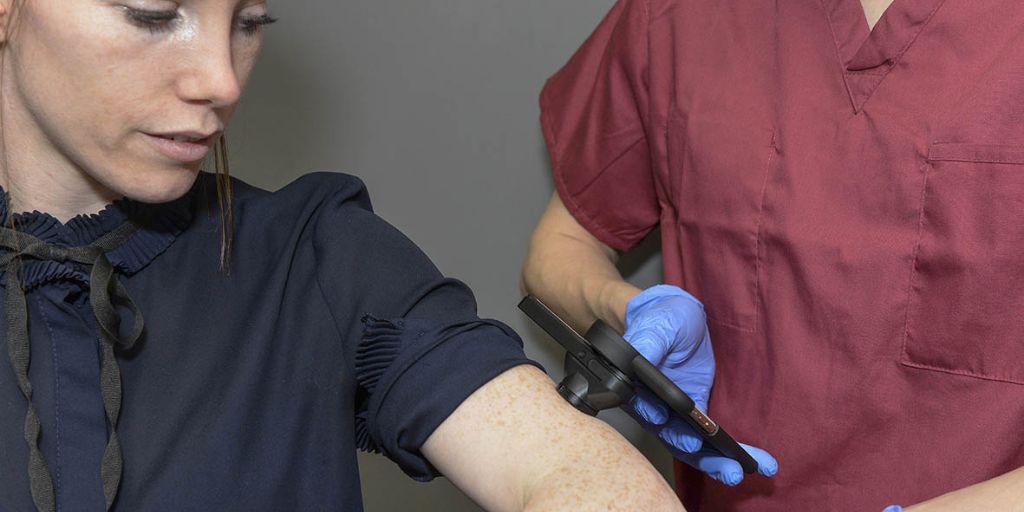
Friday, March: Chelsea and Westminster Hospital NHS Foundation Trust is utilising digital innovation and world-first autonomous technology to identify harmless (benign) skin lesions without review from the dermatology team, to be able to discharge patients on the same day as they receive their results.
This advanced AI skin cancer pathway helps clinicians and dermatologists effectively triage patients, enabling earlier detection. It helps reduce anxiety and provide reassurance for patients with benign lesions sooner while prioritising and escalating the most serious cases for specialist dermatological care.
The Trust is using AI-driven teledermatology with specialist dermoscopic imaging to quickly identify cancerous (malignant), pre-cancerous, and benign skin lesions for appropriate triage. DERM, an AI medical device (AIaMD) developed by Skin Analytics, analyses images taken by a medical photographer using a smart phone with a dermatoscope—an attachment that provides magnified images of the skin beyond what is visible to the naked eye.
DERM is the only AI medical device approved to make clinical decisions in cancer care. It performs at a high standard, with 97% effectiveness for detecting skin cancer and 99.96% for ruling out melanoma—comparable to dermatologist performance.
Jane Todman, aged 54, from Putney shared her experience:
“I first noticed a mole on my thigh in summer 2023 and, after a year of not paying much attention to it, decided to get it checked. In November 2024, I sent a photo to my GP and was quickly referred to Chelsea and Westminster’s teledermatology service.
“The process was seamless – I had an appointment with medical photography and, before I knew it, was called in to have it removed. It was a total shock when I was told it was melanoma, and I struggled to take in just how lucky I had been to have it caught before it spread. The diagnosis made me hyper-aware of every mole on my body and the importance of getting it checked as soon as possible when you have a concern. The care I received was truly outstanding, and within two weeks I had it removed.”
Using AI-driven dermatology autonomously to accurately identify and discharge patients with benign skin lesions aims to free up over 30% of suspected skin cancer appointments on the urgent cancer pathway. This will create more availability for patients with suspected skin cancer as well as those on routine dermatology waiting lists for chronic inflammatory skin diseases such as eczema and psoriasis, resulting in improved patient outcomes.
Roger Chinn, Chief Medical Officer at Chelsea and Westminster Hospital NHS Foundation Trust said:
“We’re proud to be leading the way in using AI technology to improve skin cancer care. Waiting for a hospital appointment and diagnosis can be an anxious time, especially when there are concerns about a mole or skin lesion. Our AI-driven service helps quickly identify harmless moles and skin lesions, giving patients faster reassurance and allowing them to be discharged on the same day.
“This is a big step forward in diagnosing and treating skin cancer more efficiently. It means that dermatologists have more time to focus on urgent cases—helping to save lives and improve the patient experience”
Since inception, the rollout of the Trust’s teledermatology service has been supported by the CW Innovation programme, which is led jointly by Chelsea and Westminster Hospital NHS Foundation Trust and its official charity CW+.












